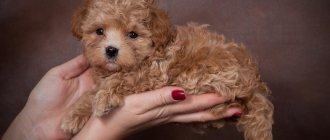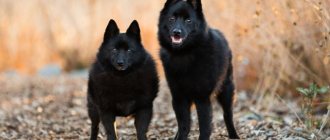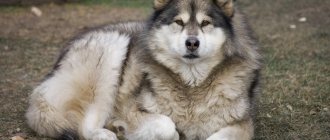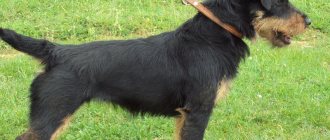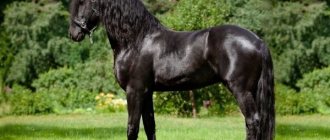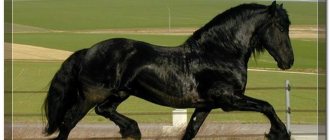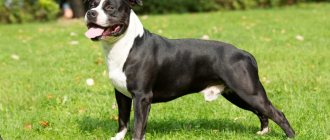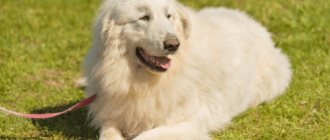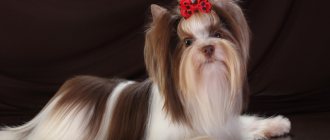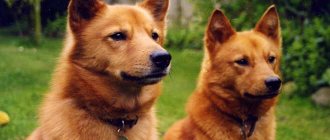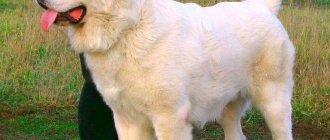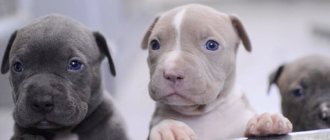Italian greyhound dog - origin
The history of the Italian greyhound's pedigree goes back more than one century. The first mentions of the dog come from Ancient Egypt and Greece: on ancient vases and other artifacts there are images of small greyhounds, burdened with the caresses of the pharaohs.
Later, these dogs migrated to Rome, where they continued to be the four-legged luxury of rich people.
With the advent of the Renaissance, rulers of other powers began to show interest in the cute but temperamental Italian greyhound. Their circle included:
- Tsar Peter I the Great;
- Queen Victoria;
- Empress Catherine II;
- King Frederick the Great.
Although even before the 13th century, the small greyhound was popular among the “blue bloods” - Cleopatra and Julius Caesar. It was only later, centuries later, through the mouths of the Italians that the ancient Italian greyhound breed became a living classic.
Even later, at the beginning of the 20th century, when crossed with a Whippet and a Miniature Pinscher, the constitution and character of the specimen were finally established.
Care and maintenance
The Italian Greyhound is one of those dogs that have a strong need for activity and movement. Despite the fact that she can easily get along in a city apartment, owners should keep in mind that she needs to be walked often and for a long time.
These dogs love to accompany their owners on errands. You can even take them on a visit. It is important that the breed can only be kept indoors - an apartment or a private house. On a chain, especially in Russian conditions with all that it entails in the form of frost, snow and cold weather, the dog will simply die.
And breeders recommend walking her in the winter season wearing a special blanket. But it’s better not to dress the dog at home, even to give it an aesthetic appearance. The body must be hardened.
At the same time, this dog is not picky about grooming. Due to its short fur, there is no need to comb it out to remove tangles. It is enough to regularly wipe the fur coat with special gloves.
Don't ignore the eyes and ears. It is important to treat them with a swab dipped in warm water, and during periods when the dog sheds, it is recommended to wipe it with a very hard towel. This dog needs little bathing, but during dirty and slushy times of the year you can wipe its paws and belly.
Clothes for Italian greyhounds are relevant on cold days
By the way, this dog is one of the rare breeds that can be easily litter box trained. There they will meet their great and small needs. But you shouldn’t be happy and exclude walks from the animal’s life – the Italian Greyhound really needs them.
Italian greyhound dog – exterior
In appearance, the thematic dog is a half-grown greyhound with graceful outlines characteristic of a greyhound, a smaller version of a slug. The muscular figure shows good speed performance.
Other signs that the Italian greyhound belongs to the greyhound are manifested through:
- Flat and narrow head;
- Pointed fox face;
- Elongated jaw;
- Scissor bite;
- Wide nostrils;
- Round eyes;
- Cone-shaped neck;
- Square body;
- Flat back;
- Slightly curved lower back;
- Developed shoulder blades;
- Low set tail;
- Uniform coat;
- Solid color.
Deviation from any of the above signs is a defect of the breed and promises disqualification.
Note!
Nicknames for dogs for boys - easy, rare and most beautiful names for dogs in alphabetical order
Nicknames for girls' dogs - a list of beautiful, funny, unusual nicknames for large and small dog breeds
- Maltipoo dog - everything about the dog from A to Z. Photos, description of the breed, character, maintenance features, prices, reviews
Nutrition
A special feature of the breed is that with well-selected products and a balanced diet, Italian greyhound puppies reach their peak development by six months and correspond in most respects to adults.
Despite the fact that, as with other breeds, any of the three types of feeding is acceptable with the Italian greyhound - natural, factory, mixed - factory feeding is still considered optimal. We are talking about premium dry food.
According to dog handlers, the food is good because it is balanced, because purchased products already take into account the proportions of microelements and vitamins necessary for this breed.
However, the dog will be happy with natural meat. Moreover, the Italian greyhound has a very good appetite. By the way, greyhounds are generally considered omnivores and the most typical representatives of the order of predators.
This means that the basis of the diet must be appropriate - meat and offal. It is important that natural proteins require gradual introduction. Food is introduced over 7-10 days, after which the portion is increased.
After just a month, you can completely switch Italian greyhounds to this type of diet, monitoring the quality of the meat and occasionally subjecting it to heat treatment. In addition, the rest of the diet can consist of complex carbohydrates in the form of cereals and fiber - vegetables and fruits.
Italian greyhound dog – purchase
It is better to buy an Italian greyhound from puppyhood.
A sign of high quality is a navel the size of half a pea and oral incisors, of which 6 should form on both jaws by the age of two months.
Purebred Italian greyhound puppies cost 40-80 thousand rubles. Controversial analogues without documents will cost 5-10 times less.
The best option is to purchase a puppy from a breeder with a preliminary reservation in order to be able to take a closer look at the conditions inside the nursery.
Possible diseases
The same rule applies to Italian greyhounds as to other decorative dogs - the smaller the dog, the longer its life expectancy. Representatives of the Italian Greyhound breed live up to 15-16 years.
And if you take good care of it and take it for “technical inspections” to the veterinarian at least once every six months, then there is a chance that the dog will not catch any disease in its entire life. However, owners should still keep their eyes open and know the typical ailments characteristic of this breed.
The sooner the owner is alerted to signs of some disease, the sooner he will take the dog for diagnosis, and the more effective the treatment will be. The most common diseases are ophthalmological. We are talking about glaucoma, retinal atrophy, corneal dystrophy and cataracts. If you do not keep track of it in time, the disease will lead to complete loss of vision.
In addition, Italian Greyhounds tend to go bald due to dermatitis. Scientifically the disease is called alopecia. You should be more careful about your pet's skin care products and use special shampoos. It is better if they are dry - these products are more gentle.
Among the neurological disorders, Italian Greyhounds can be plagued by epileptic seizures, and problems with the jaw and teeth are expressed in the form of tartar, plaque, and even loss of incisors.
Photos of Italian Greyhounds
Psychology
The Small Italian Greyhound is a very affectionate and gentle dog. The Italian greyhound, whose photos are increasingly being posted by owners on social networks, resembles a cat in its character.
- Flexibility of character. The Italian greyhound knows how to adapt to the lifestyle of its owner. In an active and sporty family, she will behave appropriately, and in a society of homebodies, she will not require physical activity, but will be able to surround her owner with her love.
- Curiosity. It is extremely necessary for the Italian Greyhound to stick its nose everywhere. She will follow you around so that she knows what you live and are interested in.
- Spoiled. It's easy to spoil an Italian Greyhound - you just need to give in once and give in to it.
- Playfulness. Italian Greyhound is a playful dog. If you have a child in the house, best friends are hard to find. Together they will be interested in rummaging through a pile of toys and taking them apart. The only thing is that the Italian Greyhound may become jealous of the child’s toys. Therefore, the dog must understand that the child has a more significant word than she does; the child is also the owner.
It is extremely necessary for the Italian Greyhound to stick its nose everywhere. She will follow you around so that she knows what you live and are interested in.
- Activity. Italian Greyhounds are very active. On the street they resemble a small hurricane - everyone rushes and jumps.
- The desire to be on top. One thing the Italian Greyhound exactly resembles cats is its love of sitting on top. Whether it’s an armchair, the back of a sofa, a bedside table or a closet, a small greyhound will certainly climb up and watch what’s going on around it. The Italian Greyhound can be considered essentially a smaller version of the Irish Wolfhound .
- Impressionability. The dog is easily frightened and made to tremble. It is necessary to protect her impressionable nature from loud sounds, otherwise the dog will begin to rush around the house in horror, demolishing everything in its path.
Important! Italian Greyhounds can get along well with their breedmates in the same home, but they are very wary of other dogs and cats.
Most often these days, the Italian Greyhound is chosen as a decorative dog or a pet.
Breed traits
Breed traits (on a 5-point scale)
| Italian Greyhound (Italian Greyhound) | |||
| Activity | in the house | 3.3 | |
| on the street | 3.7 | ||
| Obedience | training | 2.7 | |
| strangers | 2.2 | ||
| Domination | in family | 1.3 | |
| over dogs | 2.3 | ||
| Defending your territory | from people | 1.3 | |
| from dogs | 2.5 | ||
| Sociability | in family | 4.7 | |
| with strangers | 3 | ||
| with dogs | 3.5 | ||
| Concentration | in family | 1.7 | |
| in front of strangers | 3.2 | ||
| with dogs | 2.3 | ||
| Aggressiveness | in family | 1 | |
| to strangers | 1.7 | ||
| to the dogs | 2.5 | ||
| to cats | 1.8 | ||
| Family behavior | calmness | 2.8 | |
| demand for affection | 4.7 | ||
| excitability | 3.8 | ||
| playfulness | 4.2 | ||
| excessive barking | 1.5 | ||
| behavioral breakdowns | 1.8 | ||
| Tolerance for children | up to 4 years | 3 | |
| over 4 years old | 3.8 | ||
| Institutional use | watchman | 2.7 | |
| bodyguard | 1.2 | ||
This breed is often compared to the following dog breeds: Whippet, English Toy Terrier, Miniature Pinscher (Dwarf Pinscher), Basenji, Chihuahua.
The photo shows what Italian Greyhounds look like:
Mating
Sexual maturation of Italian greyhounds begins at 8-10 months of life. However, it is better to carry out mating when the female is not 1.5 years old , that is, at 2-3 estrus . Mating is carried out 11-15 days after its start.
Before mating, the Italian Greyhound needs to be given a good walk, but not fed. It is better to introduce dogs in a neutral place and then lead them to the male’s territory. After this, it is better to leave the pets alone so as not to spoil the process or frighten them away.
